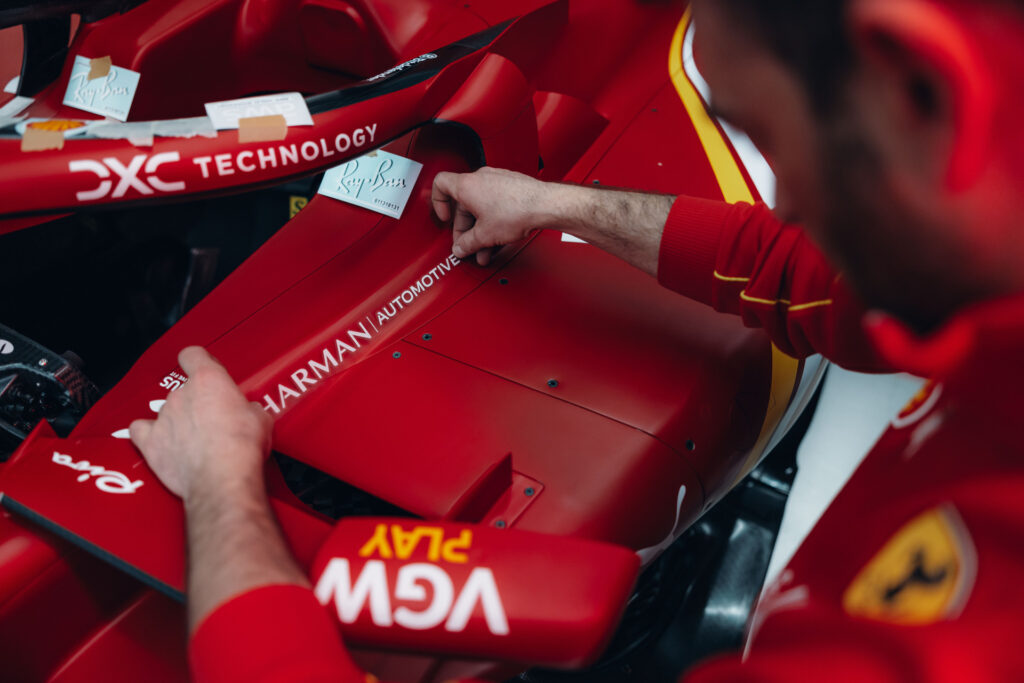Modern cars include a complex network of computers whose firmware (software that makes hardware operate) must be updated to maintain peak performance.
Downloading the latest version of firmware is nowadays mostly done remotely in a process known as an over-the-air (OTA) update, in which the new software is delivered directly to the car (or any other device) via the internet.
The world’s leading provider of this service, a company formerly known as Red Bend, sits in the small city of Hod Hasharon, a little north of Tel Aviv.
Red Bend became Harman Israel in 2015, when it was purchased by international auto tech company Harman for $200 million. A couple of years later, Samsung bought Harman for $8 billion and both companies became part of the South Korean conglomerate.

Harman Israel still operates out of the same offices in Hod HaSharon and is still providing OTA technology to cars and other vehicles. In fact, the company says its platform is in use by scores of car and phone makers, and can be found in more than two billion devices around the world.
The company was originally founded in 1999 as a provider of software for the still-burgeoning mobile phone industry and then shifted into automotive software despite having no automotive experience, Harman Israel General Manager Michal Geva tells NoCamels.
“The issue with the mobile market, which we dominated very nicely, is that Google came and provided something called GOTA – Google over-the-air updates,” she says.
“It’s very, very difficult to compete with something free so the market was closing on us and we migrated our product to automotive.”
Even now, despite being under the Harman umbrella that has brought worldwide success, Geva says the OTA work is entirely the remit of what was once Red Bend.
“The work is managed and led – from a business standpoint as well as from an engineering standpoint – out of Israel,” she says.

Geva likens the update for a car to the update for a phone, albeit a slightly more consequential one.
“You have a mobile phone, and you sometimes get messages that there’s a new version of the operating system and you need to update,” she says. “It’s the same thing in the car.”
Even so, she clarifies, a car’s operating system is far more complicated than that of a smartphone – both when it comes to the reasons for updates and the amount of hardware involved – and software upgrades for vehicles must take into account that complexity.
“At times you need to update [car software] because of vulnerabilities, because of bugs, because you want to add features,” Geva explains.
But a car can have 100 or more computers that run the internal mechanisms of the vehicle (in the industry called electronic control units or ECUs) and these are interdependent. According to Geva, this means updates to one ECU may mean another has to be updated as well in order to keep the car functioning.
Sign up for our free weekly newsletter
Subscribe“You update one, you have to update the other – or one succeeds and the other fails,” she says.
“You don’t really want to brick the car,” she adds, using the slang term for rendering a piece of machinery useless due a software failure.
“You don’t want to brick the phone either. But if you brick the phone, it’s so-so; if you brick the car, it’s bad.”
Potentially adding to the complexity of vehicle software updates is the fact that automakers regularly outsource the development of individual car parts to different companies known as original equipment manufacturers (OEMs).
But, says Geva, Harman Israel works with 25 major OEMs, which she calls “a huge number,” consolidating its place at the world leader for OTA updates.
Harman also produces other advanced software for vehicles, including its Ready Care in-cabin monitoring system. It is because of its use of this system that the Ferrari Formula 1 team recently made Harman Israel its official partner for the second consecutive year.
Harman says the AI system, which can detect if the driver is tired or otherwise distracted and automatically intervene, is also available in other Ferrari vehicles.

Geva is one of the few women leaders in the automotive industry, and while she says she has never experienced prejudice based on her sex, she cannot ignore the masculine domination of the ecosystem.
She does nonetheless recall a recent incident that made her believe that perhaps the imbalance is shifting, however slightly.
“I was pleasantly surprised four months ago, when we had a three-way meeting with a Japanese OEM and a Chinese OEM,” she recalls.
“[There were] probably 40 people on the call – each company brought its people – and the three people that led were women. I’ve been at Harmon for 10 and a half years and this is the first time that I’ve seen that.”
Geva says Harman Israel and its previous incarnation Red Bend should be an inspiration for nascent Israeli companies dreaming of making it big:
“As a startup nation, we should learn from a small company from Hod HaSharon that became the de facto number one OTA provider in the world.”
Related posts

Editors’ & Readers’ Choice: 10 Favorite NoCamels Articles

Forward Facing: What Does The Future Hold For Israeli High-Tech?

Impact Innovation: Israeli Startups That Could Shape Our Future




Facebook comments